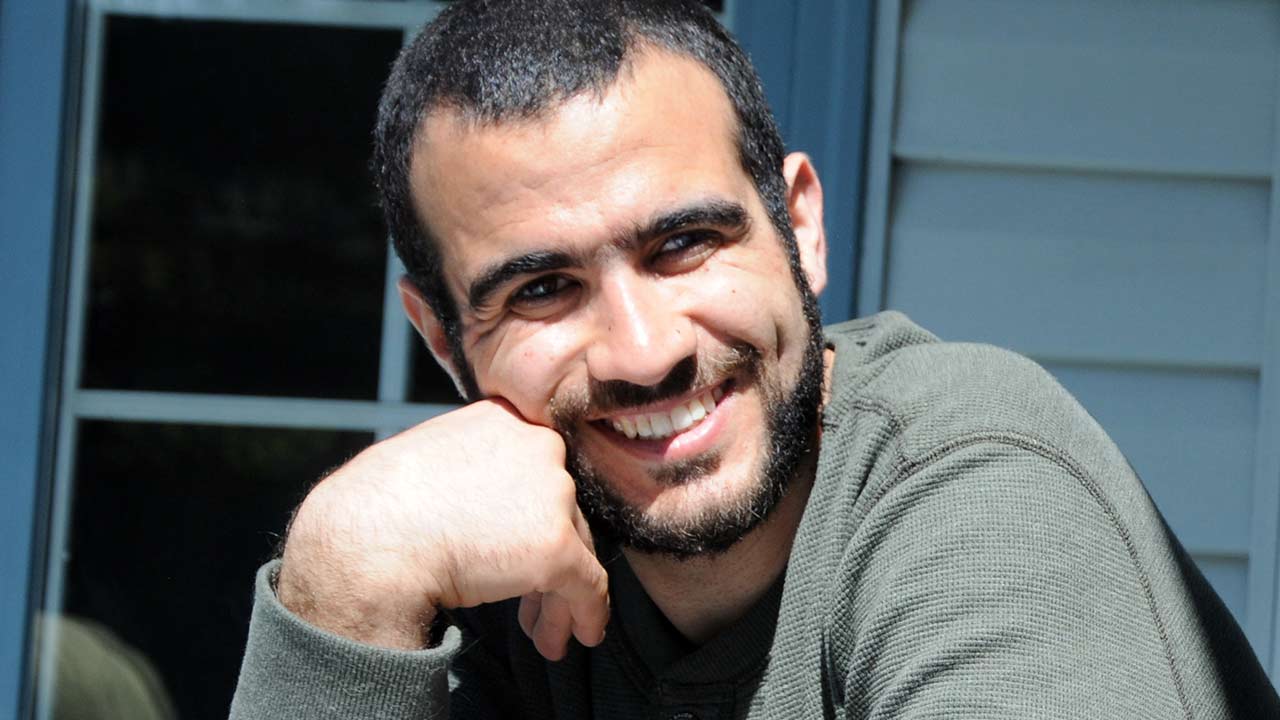 By Nathalie Drouin – Omar Khadr just turned 30. How many more years must he wait before our government finally offers him a formal apology along with compensation for the wrongs that were committed against him and that deprived him of his most basic rights?
By Nathalie Drouin – Omar Khadr just turned 30. How many more years must he wait before our government finally offers him a formal apology along with compensation for the wrongs that were committed against him and that deprived him of his most basic rights?
We have a collective debt towards this young man, a Canadian citizen with full rights whom we let languish in Guantánamo Bay prison for 10 years and who has suffered abuse, abandonment and the denial of justice repeatedly over the past 15 years in violation of international conventions of law to which our country is a signatory. Omar’s story is a true disgrace for Canada, which boasts of being a champion of human rights, above all children’s rights.
Here is a 15-point summary of the facts:
- Omar Khadr was born in Toronto on September 19, 1986. When he was 15, his father left him in a camp in Afghanistan, promising to return for him. He never did.
- Soon afterwards, the camp was bombed by the American army. Omar was the only survivor.
- During the attack he was struck by two bullets that inflicted serious back injuries and shattered one shoulder, which remains partially paralyzed. Shrapnel cost him the use of one eye and left him with limited vision in the other.
- While unconscious he was transferred to a hospital at the infamous U.S. detention centre in Bagram, Afghanistan, where he remained unconscious for a week.
- After regaining consciousness, the teenager was beaten, tortured by near drowning and threatened by aggressive dogs. He had his head covered by a full hood attached so tightly that he had trouble breathing, causing him to panic and pass out.
- Sergeant Joshua Claus, Omar’s chief interrogator in Bagram, acknowledged questioning him 20-25 times over a three-month period in sessions that lasted up to six hours and during which he was deprived of his medications and sleep.
- Sergeant Claus was later charged with the death of a Muslim prisoner and severely injuring two others using the same interrogation methods employed on Omar. His six-month prison sentence was suspended in exchange for his testimony against Omar.
- Omar Khadr was 15 years old when he arrived at Guantánamo prison. He would spend the next 10 years there, during which time his mistreatment continued.
- At Guantánamo, Omar was kept in prolonged isolation, tortured and assaulted. While all the other children were housed in special barracks and schooled, he was the only minor kept among the adult prisoners, without access to education or other means of rehabilitation.
- Canada did nothing to repatriate Omar Khadr. Despite three decisions by the Supreme Court of Canada in his favour, he was the last Western prisoner remaining at Guantánamo.
- By virtue of various international treaties, notably the Convention against Torture, the Convention on the Rights of the Child and the Vienna Convention on Consular Relations, Omar Khadr was entitled to various forms of protection, all of which he was denied. As a treaty signatory, Canada was obliged to protest the fact that these forms of protection were not granted to one of its citizens, especially in a matter involving a 15-year-old child.
- Omar Khadr’s military trial began in August 2010. He was 24 years old. A guilty plea agreement was negotiated: eight years’ imprisonment, with one year to be served at Guantánamo and the other seven in Canada, where he would be eligible for parole in accordance with Canadian law. Without this agreement, Omar risked 40 years in prison.
- Jury members did not have access to a video in which Omar is seen lying on his cell floor, pleading through his tears to see his mother, while intelligence and CIA agents interrogated him. Nor was the jury informed of the sadistic treatment he suffered or that he had spent much of his imprisonment at Guantánamo in isolation.
- On May 7, 2015, after 13 years in prison, Omar was finally released on bail. Astonished Canadians discovered a serene young man of exemplary wisdom.
- As Omar continues to await the appeal before the Court of Military Commission Review in Washington, D.C. to revoke all his sentences at Guantánamo, his legal troubles are still far from ended.
Omar Khadr just turned 30.
His regained freedom and love of life should not allow us to forget that we chose to close our eyes for many years while his rights were being violated.
It is now time for the government of Canada and all Canadians to acknowledge and redress our errors, in particular by helping Omar escape his enduring legal nightmare.
Nathalie Drouin, founder and president
Pouromarkhadr.com

